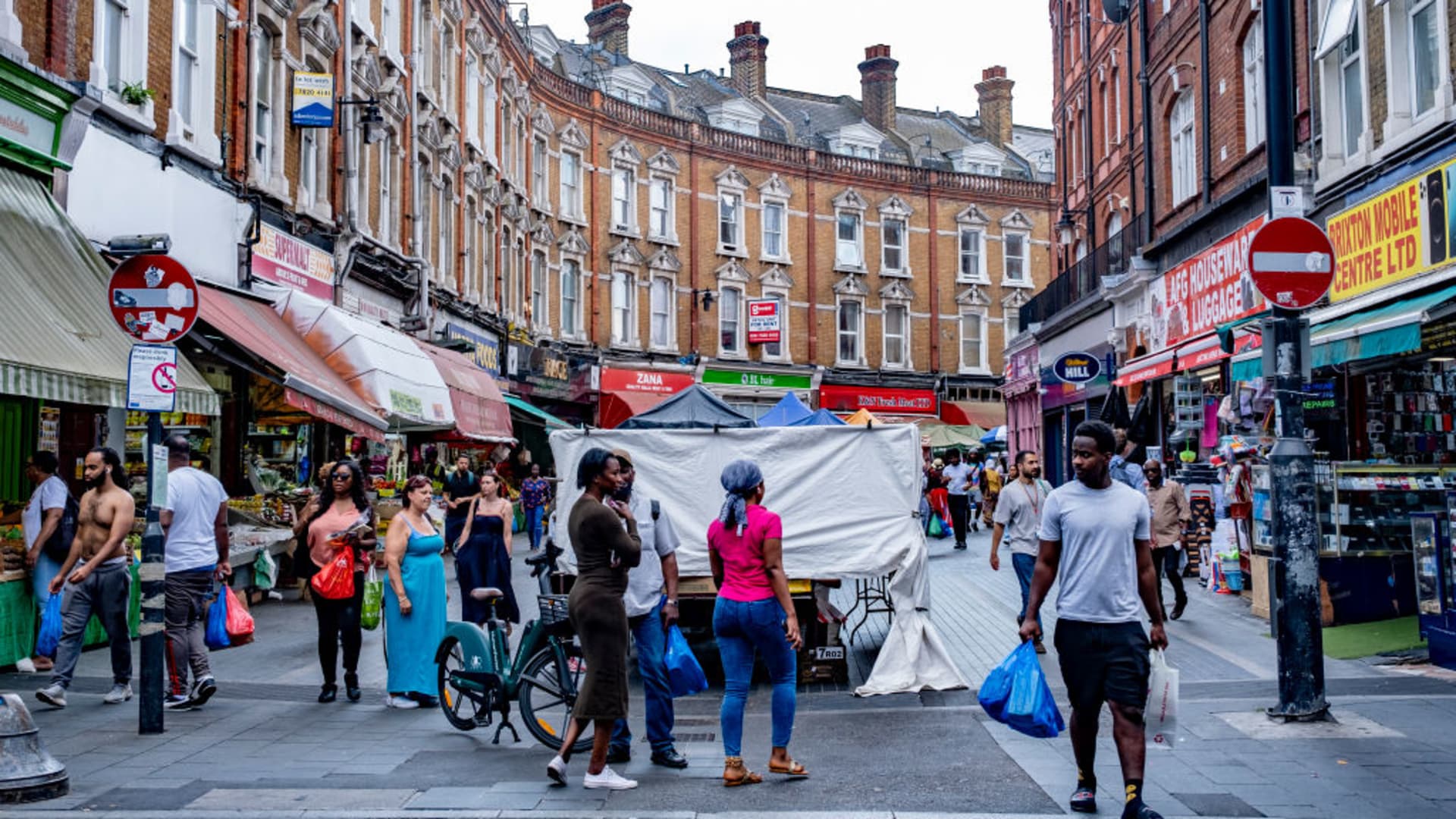[ad_1]
U.K. consumer prices across all items rose to 7.9% in May when compared to the previous year, the OECD said, up slightly from 7.8% in April.
Mike Kemp | In Pictures | Getty Images
LONDON — The U.K. is the only country among the Group of Seven wealthy nations where inflation is still rising, according to data from the Organization for Economic Cooperation and Development.
The Paris-based organization said Tuesday that year-on-year inflation in the G7 fell to 4.6% in May, down from 5.4% in April, reaching its lowest level since Sept. 2021.
The downward trend was observed across most advanced economies in May, with annualized inflation ticking lower in the U.S. Canada, France, Germany, Italy and Japan.
Britain, however, was found to be an outlier.
U.K. consumer prices across all items rose to 7.9% in May when compared to the previous year, the OECD said, up slightly from 7.8% in April.
It comes as many major central banks start to consider bringing their aggressive interest rate hikes to an end as prices cool, even as inflation remains elevated.
Last month, the Bank of England hiked interest rates by 50 basis points to 5%, a larger increase than many expected. The BOE’s 13th consecutive rate rise takes the base rate to the highest level since 2008.
The move, which exacerbated fears of a mortgage catastrophe, marked a divergence from other major central banks that have been able to either slow or pause interest rate hikes.
The OECD’s national consumer price index for the U.K. includes the costs of owning and living in a home and is its most comprehensive measure of inflation.
A separate measure of CPI, based on a harmonized methodology developed by Eurostat, allows for international comparisons. In the U.K., for example, this measure of headline CPI came in at 8.7% in May, unchanged from the previous month.
The OECD in early June forecast that the U.K. will post annual headline inflation of 6.9% this year, the highest level among all advanced economies.
OECD headline inflation slows in May
Year-on-year inflation, as measured by the consumer price index, slowed markedly to 6.5% in May, down from 7.4% in April. It means headline inflation in the OECD is now at its lowest level since Dec. 2021.
Between April and May, the OECD said inflation dipped in all observed countries except in the Netherlands, Norway and the U.K.
Across all OECD countries, the group said inflation rates ranged from less than 3% in Costa Rica, Greece and Denmark to more than 20% in Hungary and Turkey.
Core inflation, which excludes volatile food and food prices, declined at a much slower rate across 33 OECD countries, however, continuing a recent trend. It reached 6.9% in May, down from 7.1% in April.
Energy inflation, meanwhile, was found to have plunged to -5.1% in May when compared to the previous year, from 0.7% in April.
[ad_2]
Source link



